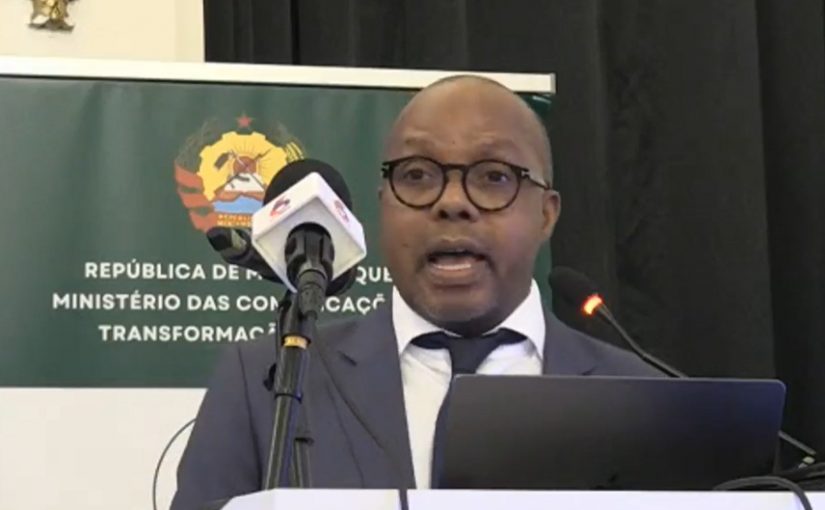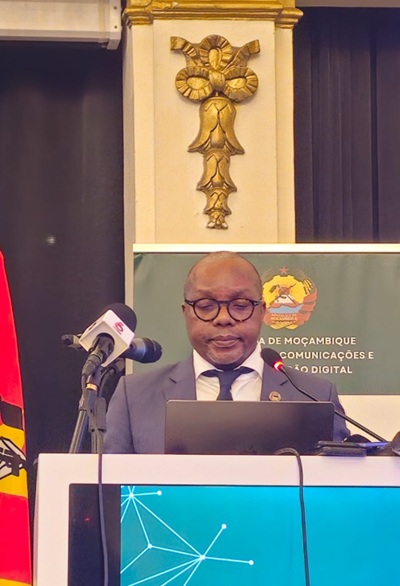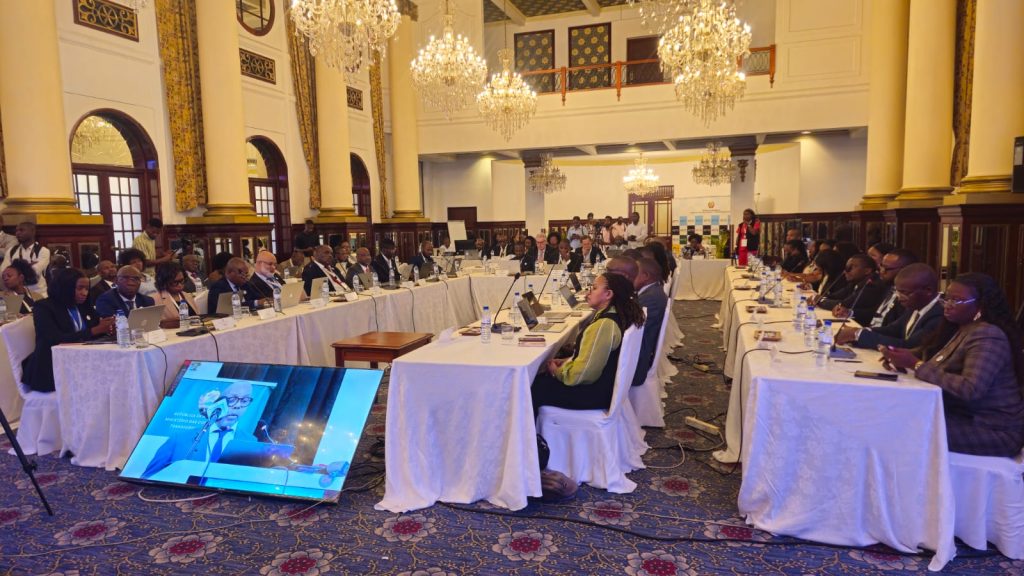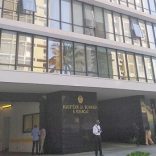State revenues from dividends plunge 34.3% in first half, concession revenues up 9.4%
Mozambique: Digitalization is crucial for socio-economic development – Watch

Photo: Ministério das Comunicações e Transformação Digital
The Mozambican Minister of Communications and Digital Transformation, Américo Muchanga, believes that digitalization is crucial for the country’s socio-economic development.
According to Muchanga, who was speaking on Wednesday in Maputo during the 1st Coordinating Council of his ministry, which takes place under the motto “Communications and Digital at the Service of the Citizen and Economic Development”, the government has been working to ensure that communications and digital transformation contribute concretely and rapidly to the country’s growth.
“In short, our institutional mandate and the duty of each of us is to ensure that Communications and Digital Transformation contribute, rapidly, to the promotion of Mozambique’s socio-economic growth and development”, he said

Within the framework of digital inclusion and the modernization of public services, the government has already distributed 5,000 computers to higher education students throughout the country, as part of the “One Computer per Higher Education Student” initiative.
The minister said that the “Internet in Schools” initiative is underway, aiming to expand access to broadband internet among the population. To date, 199 public schools are connected to the internet, allowing students and teachers to access online educational content.
To further expand connectivity, ten Digital Squares have been created, one in each province, offering free internet access and promoting educational, social, and economic development, especially in urban and peri-urban areas.
In the telecommunications sector, the government has installed 143 new antennas in all provinces of the country, reinforcing network coverage and access to communication services.
The Minister revealed that, within the framework of the Public Administration Reform and Modernization Program, 7,033 people were trained in digital skills, of which 3,746 are women and 3,287 are men, reinforcing technical capacity building and gender inclusion in the digitization process.
In the field of regulation, the government approved and published three relevant legal instruments, notably the Postal Sector Development Strategy (2025–2030) and the revision of the Regulation on Registration and Licensing of Intermediate Electronic Service Providers and Digital Platform Operators.

“As government, we acknowledge that in this investment journey we will face numerous challenges, including those related to Cybersecurity, data protection, and digital inclusion”, he said.
The minister also called on the private sector, academia, and civil society to collaborate with the government in creating a secure, inclusive, and sustainable digital environment.
“We move forward in a coordinated manner, strengthening mechanisms for preventing and mitigating cyber incidents, guaranteeing the digital privacy of every citizen, and promoting a culture of responsible and conscious use of technology”, he said.












Leave a Reply
Be the First to Comment!
You must be logged in to post a comment.
You must be logged in to post a comment.